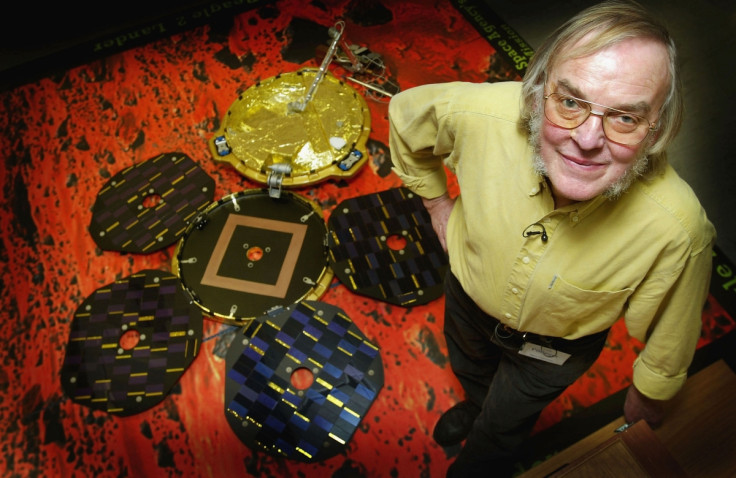Colin Pillinger: Pioneering Beagle 2 Mars Mission Planetary Scientist Dies Aged 70

British planetary scientist Professor Colin Pillinger has died aged 70, his family has confirmed.
Pillinger, who was best known for his 2003 attempt to land a spacecraft on Mars, was at his Cambridge home when he suffered a brain haemorrhage and fell into a deep coma. His family confirmed that he later died at Addenbrooke's Hospital.
At the age of 62, Prof Pillinger was diagnosed with multiple sclerosis. He is survived by his wife Judith with whom he had two children, Shusanah and Nicolas.
His family said in a statement: "It is with profound sadness that we are telling friends and colleagues that Colin, whilst sitting in the garden yesterday afternoon, suffered a severe brain haemorrhage resulting in a deep coma. He died peacefully this afternoon at Addenbrooke's hospital, Cambridge, without regaining consciousness ... We ask that all respect our privacy at this devastating and unbelievable time."
Who was Prof Colin Pillinger?
The scientist was the force behind Britain's Mars lander Beagle 2, part of the European Space Agency's Mars Express mission in December 2003. As the principle investigator, Pillinger built a probe to search for Martian life, naming it Beagle 2 after Charles Darwin's HMS Beagle.
This was the first time an individual researcher had sent their own vessel into space and the first British-built interplanetary spacecraft. However, a lack of interest from the government meant the Beagle 2 project struggled to obtain funding.
Unexpected support came from the rock band Blur - who wrote a song - while a final £5 million grant from Lord Sainsbury, the then-science minister, saved the project.
Yet the spacecraft vanished without trace. The Beagle 2 website states: "Nothing has been heard from Beagle 2 and the mission is presumed lost."
Despite the setback, Pillinger continued to push space agencies to complete his "unfinished business on Mars".
Where did he begin his career?
Pillinger graduated with a BSc and PhD in chemistry at the Swansea University. He said of himself: "I was a disaster as a science student."
He began working in astronomy at Nasa, analysing samples of moon rock on the Apollo 11 programme. He was professor in interplanetary science at the Open University, fronting the university's Department of Physical Sciences until 2005.
In 2003, he was awarded a CBE and had an asteroid named after him one year later. At the time, Dr Everett Gibson, a Nasa senior scientist, said: "A piece of Professor Pillinger now moves between Mars and Jupiter."
Pillinger also worked as a conference and after-dinner speaker for the JLA agency.
© Copyright IBTimes 2025. All rights reserved.





















